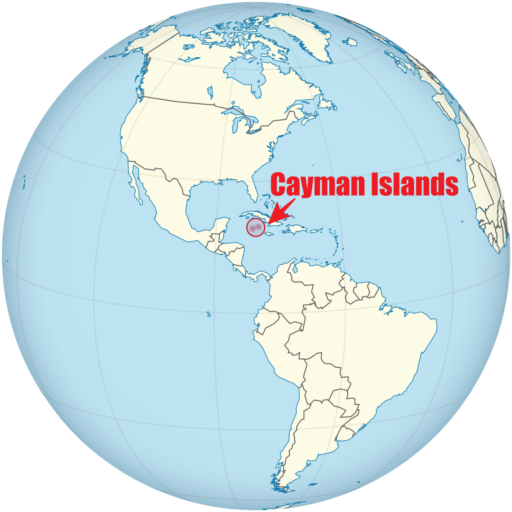The Cayman Islands is one of the world’s most sought-after offshore jurisdictions, known for its tax neutrality, strong legal framework, and business-friendly environment.
This post will explore into how to set up an offshore company in the Cayman Islands.
If you are looking to invest as an expat or high-net-worth individual, which is what I specialize in, you can email me (advice@adamfayed.com) or WhatsApp (+44-7393-450-837).
This includes if you are looking for a second opinion or alternative investments.
Some of the facts might change from the time of writing, and nothing written here is financial, legal, tax or any other kind of individual advice, nor a solicitation to invest.

The Cayman Islands offers a robust infrastructure for asset protection, investment management, international trade, and wealth structuring.
This guide provides a comprehensive overview of the process, legal requirements, and operational considerations for setting up an offshore company in the Cayman Islands.
Why Should You Open an Offshore Company in the Cayman Islands
The Cayman Islands offers several strategic advantages for individuals and corporations looking to establish offshore entities.
One of the primary benefits is the absence of direct taxes. There are no corporate taxes, income taxes, capital gains taxes, withholding taxes, or wealth taxes, making it a truly tax-neutral jurisdiction.
This makes the Cayman Islands particularly attractive for investment funds, holding companies, and international business structures.

Another key benefit is the confidentiality of company ownership. The identities of shareholders and directors are not publicly disclosed, providing a high level of privacy.
Additionally, there are no foreign exchange controls, allowing the free flow of capital globally. The jurisdiction also offers political and economic stability, with a legal system based on English common law, further enhancing investor confidence.
How to Open a Cayman Offshore Company
Step 1: Choose the Right Business Structure
The most common structure for offshore business activities in the Cayman Islands is the Exempted Company, governed by PART VII of the Companies Act (2021 Revision). This structure is specifically designed for businesses that operate outside the Cayman Islands and do not generate income locally. The key features are:
- 100% foreign ownership with no residency requirements for directors or shareholders.
- Limited liability protection for shareholders.
- No requirement to conduct business within the Cayman Islands.
- Confidentiality of shareholder and director information (not part of the public record).
- No minimum capital requirements, though standard authorized capital is USD 50,000.
Alternatively, the Limited Liability Company (LLC), introduced in 2016, combines the features of a corporation with the flexibility of a partnership. It allows for flexible profit distribution, making it popular for private equity structures, joint ventures, and holding companies.
Step 2: Choose a Name for Cayman Islands Offshore Company Registration

The next step is to choose a unique company name that complies with the naming regulations of the Cayman Islands.
The name must not be identical or misleadingly similar to existing companies. Certain terms like “bank,” “insurance,” or “assurance” are restricted unless the company obtains the appropriate licenses.
The name should also include a suffix such as “Limited,” “Ltd.,” or “LLC” to indicate the company’s legal status, if appropriate. By the same token, it must not include at its end “LDC” or “SEZC” unless the company is an exempted limited duration company (LDC) or special economic zone company (SEZC).
The chosen name must be approved by the Registrar of Companies.
Step 3: Appoint Directors and Shareholders
A minimum of one director is required, who can be an individual or a corporate entity, with no restrictions on nationality or residency.
Similarly, at least one shareholder is required, and the same person or entity can act as both director and shareholder if desired. Nominee directors and shareholders can be appointed to enhance confidentiality.
Step 4: Engage a Registered Office and Agent
Every Cayman Islands company must maintain a registered office within the jurisdiction, provided by a licensed service provider.
A registered agent—typically a law firm or corporate services provider—is also required. The registered agent handles legal compliance, correspondence with government authorities, and ensures that the company adheres to anti-money laundering (AML) regulations.
Step 5: Determine the Share Capital Structure
There is no mandatory minimum share capital, but most companies have an authorized capital of USD 50,000, divided into 50,000 shares of USD 1.00 each. Shares can be issued with or without par value.
Bearer shares are prohibited under current legislation to comply with global transparency standards, and all shares must be registered.
Step 6: Prepare and File Incorporation Documents
The incorporation process involves preparing the following key documents:
- Memorandum of Association (MoA): This document defines the company’s name, objectives, share capital, and registered office address.
- Articles of Association (AoA): This outlines the rules governing the company’s internal management, including director responsibilities, shareholder rights, and meeting protocols.
These documents, along with details of the company’s directors and shareholders, are filed with the Registrar of Companies. Once submitted and approved, the company receives a Certificate of Incorporation, usually within 3 to 5 business days, depending on the completeness of the documentation and regulatory reviews.
Cayman Islands Offshore Company Compliance, Requirements and Maintenance
Annual Requirements
Although the Cayman Islands has minimal reporting obligations, companies must comply with the following:
- Annual Government Fees: Companies must pay an annual fee to the government, typically around USD 800 to USD 1,200, depending on the company’s authorized share capital.
- Registered Office and Agent Fees: Ongoing service fees for maintaining the registered office and agent.
- Accounting Records: While there is no requirement to file annual financial statements or conduct audits, companies must maintain accurate accounting records detailing income, expenses, assets, and liabilities. These records can be kept anywhere but must be available upon request by regulatory authorities.
Economic Substance Requirements
Introduced in 2019, International Tax Co-operation (Economic Substance) Act applies to entities that include companies and limited liability partnerships. An entity in the Cayman Islands is required to notify the Authority annually of, among other things, whether it is carrying on a relevant activity and whether it is a relevant entity.
“Relevant activity” does not include investment fund business, but include the following:

- Banking
- Distribution and service centre business
- Financing and leasing
- Fund management
- Headquarters business
- Holding company business
- Insurance
- Intellectual property business
- Shipping
“Relevant entity” does not include an investment fund, or an entity that has tax residency outside the Cayman Islands.
Relevant entities involved in relevant activities must demonstrate “substantial economic presence” in the Cayman Islands, including:
- Having an adequate number of employees physically present in the jurisdiction.
- Incurred adequate expenditure locally.
- Maintaining appropriate physical office space in the Cayman Islands.
A Failure to comply with economic substance requirements can result in significant fines and dissolution of the company.
Offshore banks in the Cayman Islands
After incorporation, the next step is to open a corporate bank account in the Cayman Islands or internationally. The Cayman Islands is home to numerous reputable international banks, offering multi-currency accounts, investment services, and global transaction capabilities.
To open an account, banks typically require:
- Certificate of Incorporation
- Memorandum and Articles of Association (MoA and AoA)
- Proof of identity and residence for directors, shareholders, and beneficial owners (passport copies, utility bills)
- Business plan outlining the nature of the company’s operations
- Bank reference letters or professional references
Banks in the Cayman Islands have strict Know Your Customer (KYC) and anti-money laundering (AML) procedures, and account approval can take 2 to 4 weeks depending on due diligence requirements.
Restrictions and Legal Considerations
While the Cayman Islands is a flexible offshore jurisdiction, certain restrictions apply:
- Cannot conduct business within the Cayman Islands unless licensed for specific activities.
- Regulated activities, such as banking, insurance, and investment fund management, require special licenses from the Cayman Islands Monetary Authority (CIMA).
- Companies must comply with international tax transparency laws, including FATCA (for U.S. persons) and the Common Reporting Standard (CRS) for global information exchange.
For more guidance in setting up an offshore company in the Cayman Islands, consult with a qualified legal advisor, an expat financial advisor or registered agent.
Pained by financial indecision?

Adam is an internationally recognised author on financial matters with over 830million answer views on Quora, a widely sold book on Amazon, and a contributor on Forbes.



